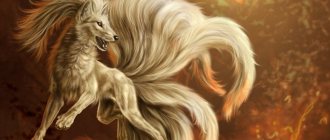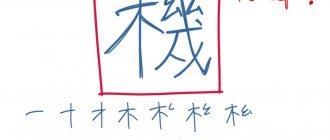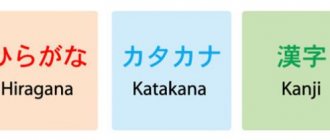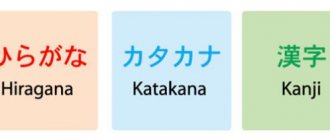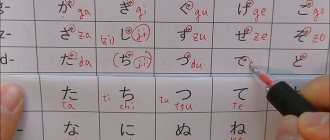“The dog, thanks to its long-standing affection for humans, its insight, patience and obedience, even serves with noticeable joy for many years, and sometimes its entire life, to the experimenter.” (I.P. Pavlov) “It is difficult to find an animal that is more able to express its feelings than a dog. Joy, sadness, gratitude and even remorse - all this can be read in her eyes. We humans are wrong to think that we alone have the ability to express our feelings. Maybe it's true. But look into the dog's eyes! You will see in them the same as in human ones. In essence, dogs definitely have what we call a soul." (Polar explorer Roald Amundsen) “Emotionally, animals are much closer to us than is usually believed... The objective physiological symptoms of deep emotions - especially grief, in animals such as geese and dogs, are practically the same as in people” (Animal psychologist K Lorenz "Year of the Gray Goose")
It has long been known that a dog is a faithful friend and helper of a person. Dogs are often sent on the most important missions and are trusted to save people. They couldn’t do without them during space exploration, they are used in medical research, they are called for help during catastrophes and natural disasters... And what is the contribution to science of the so-called Pavlov’s dog worth! Scientists believe that dogs can heal people with their presence, devotion and love. And it’s not for nothing that Charles Darwin called dogs “loving us more than themselves.” Therefore, shaggy friends are valued all over the world, and monuments to four-legged “younger brothers” are erected in many countries, and their exact number cannot be accurately counted. There are similar attractions in Japan.
In the cities of Wakkanae and Sakai, monuments were erected to 15 sled dogs that could not be evacuated from Antarctica during the Second Antarctic Japanese Expedition. The guide dog, which in 1982 pulled its blind owner from under a car that had lost control on a slippery road, also gained great fame. The dog's heroism was not cheap - he lost one paw. The then Prime Minister of Japan, Ya. Nakasone, admired the dog’s act along with all the people, and the dog was taken around the country and demonstrated as a national celebrity. In addition, this event helped raise a significant amount of money to help blind people.
The most famous “dog” monument is located in the Shibuya district of Tokyo. He immortalized the devotion of an Akita dog named Hachiko, whose life story is known to all Japanese, young and old.
Hachiko was born in 1923 in the city of Odate, and two months later he came to Professor Eisaburo Ueno. The owner went to work at Tokyo University every day. In the morning, the faithful dog accompanied the owner to Shibuya Station, and met him in the evening. But when the dog was 1.5 years old, on May 21, 1925, the professor died of a sudden heart attack far from his pet. And although the owner did not return home, the faithful Hachiko invariably came to the railway station at a certain time and waited for his beloved master for 10 years, until his death in 1935. The professor’s relatives and friends tried to take care of the yearning dog, but Hachiko did not find anyone let you into your faithful heart. After death, the dog was cremated and buried with its owner.
This story became known after an article in the Asahi newspaper and touched the Japanese to such an extent that, thanks to voluntary donations, a bronze monument to the dog was erected at Shibuya Station.
But during the Second World War it was melted down for military needs, and the current copy was delivered in 1948. Once a year, a solemn ceremony is held near the Hachiko monument; hundreds of dog lovers come to bow to the faithful dog. It is also customary to make appointments with a faithful friend near the sculpture. Even without knowing Tokyo and practically speaking the language, it is impossible to get lost if you say the magic word “Hachiko” - any Japanese will immediately show you the place you are looking for.
In general, loyalty and devotion are in the blood of the Japanese nation. Japanese dogs have largely adopted the best traits of their owners. And people are sure that loyalty cannot be met with treason. Therefore, they sacredly honor their pets - they try to treat the living as deities, and they keep a long memory of those who have passed on to another world.
The Japanese also love nature and know how to live in harmony with it, skillfully combining their love with all the achievements of civilization. And, of course, dogs have a very special place in the life of the Japanese. I will not talk about the various dog breeds bred in Japan - this is a topic for a separate discussion. I will give just some interesting facts.
For example, I introduced a very original way to normalize the situation in the team. To do this, a long-haired shepherd named Heidi was placed in the computer office. A kind and affectionate dog greeted employees every morning at the entrance to the office and licked them. It’s surprising that the joy of the company’s employees literally knew no bounds, and they responded to the dog with vigorous strokes and kisses. Many people wanted to talk to their dog during the day, especially after an unpleasant conversation with their boss or experienced stress. Smart Heidi prudently ran around her charges several times a day.
Practical Japanese conducted a study and noticed that employees under the care of a dog not only had an improved mood and increased productivity, but also increased creative activity. And believe me, the Japanese know how to appreciate such things!
The animal faithfully served the company for more than a decade. Hayda recently turned 12 years old. It should be noted that this age is very respectable for an animal. It is equal to approximately 70 years in human terms. Therefore, the shepherd dog was sent to a well-deserved rest with great honor and was even given a substantial pension - she will receive fresh beef every day. Heide also retained her pass to her home company. With the help of this document, the honored employee will be able to visit her former colleagues at any time.
But don't think that the dog position has been empty for a long time. She was taken by a puppy of the same breed of beautiful long-haired shepherd dogs.
The Japanese are trying in every possible way to transform the life of their pets from “dog” almost into “royal”. It’s easy for them to do this, because in order to please their four-legged friend they just need to go to a special dog store. After such visits, dog owners' expenses increase significantly, but is there a price for true joy? The most famous dog supply store is located near Tokyo on the island of Odaibo. It is customary for entire families to go there on weekends. The assortment of the shopping center amazes even the biggest shopping specialist. Many people can only dream of such variety: cosmetics, outerwear, underwear, hats, accessories, fashionable pajamas, capes, national clothes, evening dresses, jewelry, vitamins, medicines, furniture, jars of delicacies, birthday gift sets ... Yes, yes, all this is for dogs! In addition, you can also purchase a puppy in the same store.
For the Japanese, a dog is also the youngest child, who is pampered and taken care of by absolutely everyone. Even in hot weather, dogs can now enjoy ice cream just like their owners. A special variety of this cooling dessert went on sale not long ago. It minimizes the amount of milk sugar, which is difficult for dogs to digest, but adds other beneficial substances. Dog ice cream tastes like yogurt. They also plan to make a product with bacon and sausage flavors.
It would seem that the easiest way to buy a pet is to go to a pet store. But in modern Japan this simple path is gradually dying out. An increasing number of Japanese are buying their faithful friend from toy stores. Mass production of electronic animals has been established, which are almost no different from real ones.
Robotic animals are especially popular among those who do not have suitable conditions for keeping pets, as well as among people who find it difficult to care for a living animal.
Interestingly, toy animals, like real ones, help their owners relieve stress and lift their spirits. The number of electronic animals sold has long exceeded a million.
Once upon a time, the robot dog Aibo, made by , was an engineering marvel. Today, dog lovers can even listen to their pet bark. Dogs with artificial intelligence not only recognize their owner, but are also very trainable. Like an ordinary animal, their character changes over the course of their lives. Dogs are responsive to affection, they rejoice and wag their tail. However, if improperly raised or abused, the animal can become angry and withdrawn.
There are a wide variety of dog breeds - from simple pugs to the most exotic. They all have a wonderful appearance - fluffy fur, shiny eyes, miniature claws.
The most popular dog model today is “Yume Inu”, which translated into Russian means “Dream Dog”. It is not expensive by Japanese standards - about $50, so almost anyone can buy it. The Microanimal model fits comfortably in the palm of your hand. Its price is even less - from 6 to 10 dollars. Despite their miniature size, the animals can walk and sing. They were even included in the Guinness Book of Records as the smallest sound devices.
Fans of cats, hamsters, rabbits, mice, guinea pigs and our other little brothers should not be upset either. As they say, all tastes and needs are satisfied.
But I still want people not to become victims of progress and not completely replace the living with the artificial. After all, whatever you say, a living dog is an extraordinary miracle!
The word "cat" in different languages
- English language: Cat (cat) - cat or cat, Kitten (kitten) - kitten
- Arabic: Kyit or Bissih
- Armenian: Gatz
- Africans: Kaht; kitten – Katji
- Basque: Cathua
- Bulgarian: Kotka, cat - Kotarak
- Welsh: Kahz
- Hungarian: Matska or Tsitsa. Hungarians call their cats Tsitsuka, Tsitsus-Mitsus, Nuau-nuau.
- Vietnamese: Kon Mko
- Hawaiian: Butts, and the kitten is Kiki
- Manx Gaelic: Kate (general cat), Stubbin (Manx breed), Pisheen Kate (kitten)
- Dutch: Kat, diminutive Katji, plural Kattn; Cat - Pois, diminutive Poisje, plural Poizn; Cat - Kete, diminutive Ketatji, plural Ketes
- Greek: the cat is Gata, and the cat is Gatos
- Dari (one of the languages of Afghanistan): write cat, write cat, write, write
- Danish: Kat
- Hebrew: the cat is Chatul, and the cat is Chatula
- Yiddish: Kats or Khatul
- Indonesian: Kutjin
- Irish: Kat (long e, almost o and soft t)
- Irish (Gaelic): Pishkin
- Icelandic: Kattur, Kisa
- Spanish: Gahtoh, Ghetito's kitten
- Italian: cat - Gatto, kitten-cat - Gattina
- Chinese: Mau
- Korean: Gohyanggi
- Khmer: Chma
- Latin: Felis (this is where all the names of cat species come from: felis catus, felis silvestris, etc.)
- Lithuanian: Katines (cat), cat - Kete
- Mayan language^ Mis
- Malaysian: Kukin
- Maltese: Kuatus (cat), Kuatussa - cat
- In Mexico: Felino (cat), Felina (cat), and the plural is Feline; Gato (cat), Gata (cat), and the plural is Kat
- German: the cat is Kater, and the cat is Katze
- German(Swiss): Basi
- Norwegian: Katt
- Pakistani: Shimi
- Polish: Kot (cat), Kotka (cat), and kitten - Kotek
- Portuguese: Gata (cat), and the cat is Gato
- Pashto (one of the languages of Afghanistan): cat - Narpishak, cat - Pishak
- Romanian: Pisikuh
- Serbian: Makka
- Slovak: cat - Mizhu or Kotso, and cat - Macka
- Swahili: Paka
- Thai: Mee-oh
- Tamil: Punai
- Tsalagi (Cherokee language): Vise
- Turkish: Kedi
- Farsi (Persian or Iranian): Gorbay, Bach Gorbay (kitten), Pishi
- Filipino: Pusa, kitten - Kitin, in Visayan dialect kitten - Kurin
- Finnish: Kissa, Katie (diminutive)
- French: Chat - cat, Chat - cat, Chaton - kitten
- Hindi: Minus (cats), kittens - Minusis
- Gypsy (Lovar dialect): Flour
- Cherokee Indian Language: Pronounced Cinta
- Czech: cat - Kochour, cat - hummock
- Chuvash: Kuzhak (emphasis on “a”)
- Swedish: Katt
- Eskimo: Pussy
- Esperanto: Keto (colloquial)
- In Ethiopia: Domaz
- Japanese: Neko (neko)
In Egypt, the cat is called Mau
More about the same: How to call a cat in different languages
Home » Dogs » Dog names
Japanese dog names
Japanese names for dogs are becoming increasingly popular, because they combine euphony, originality and deep meaning. We suggest you follow the oriental fashion when choosing a nickname for your pet.
September 23, 2014
Irina Evdokimova
They say that a name determines one's destiny. Perhaps this statement is true not only for people, but also for dogs. If your pet's name is more than just a good combination of sounds, choose a name with meaning for it. Japanese dog names combine original sound and deep meaning. It is nicknames in Japanese that are increasingly becoming the choice of loving owners.
Have no doubt that a Japanese name will suit your dog. Among the many proposed options, you can find a name for an exquisite purebred dog, a stern service dog or a funny mongrel. Japanese nicknames are universal for any breed. The only thing that the owner should be guided by when choosing is the correspondence of the Japanese name to the dog - its character and exterior.
How to say dog in Japanese
"Wolf"
In the hieroglyph 狼, two components : on the left is “dog” 犭, which we already know, and on the right is 良 “good”. As you might have already guessed, “dog” is the key of this sign at number 94 .
Him:ロウ
Kun:おおかみ – wolf
The origin of this hieroglyph is simple: the left element “dog” is responsible for its meaning , symbolizing an animal related to dogs, and the right element is a phonetician . If you look at the meaning of individual components, you get an absurd but funny mnemonic rule : “wolf” 狼 is “good” 良 “dog” 犭.
| Word | Reading | Translation |
| 虎狼 | ころう | tiger and wolf; beasts of prey; arr. Cruel person |
| 天狼星 | てんろうせい | Sirius (star in the constellation Canis Major) |
| 狼狽 | ろうばい | confusion, confusion; confusion, panic |
| 狼藉 | ろうぜき | disorder, confusion; riot, outrage, debauchery |
Our article has now come to an end. We hope you found it useful. For those who missed the previous material on hieroglyphics, we leave links to it:
Japanese characters: "demon", "snake", "evil", "hatred"
Japanese characters: “smile”, “kindness”, “emptiness”, “loneliness”
Japanese characters: “heart”, “hope”, “loyalty”, “faith”
Japanese characters: “moon”, “star”, “sea”, “noise”
Japanese characters: "tea", "sakura", "art", "money"
Japanese characters: “perfection”, “infinity”
Japanese characters: "peace", "tranquility", "harmony"
Japanese characters: "day", "night", "light", "darkness"
Japanese characters: “horse”, “fox”, “elephant”
Japanese characters: "man", "woman", "child", "children", "school"
Good luck in learning Japanese!
Japanese characters: “cat”, “cat”, “dog”, “tiger”, “wolf” - we analyze the readings, spellings and meanings in this article. Let's learn Japanese kanji together on our website!
How does a nickname affect a dog's character?
The name chosen by the owner of the dog should personify the character of the animal and, without visual acquaintance, indicate its breed. The pronounced name should be easily perceived by ear, not cut into it, and similarly remembered by the animal.
The beauty and unrivaled appearance of Japanese dogs
Note! A soft and gentle combination of sounds indicates that the nickname belongs to a beautiful domestic creature, and, conversely, sharp and hard sounds warn that the four-legged friend is at least a German shepherd.
When deciding on an animal's name, you should know its birth history and parents. According to unconfirmed information, many dog handlers are confident that the nickname chosen by the owner influences the dog’s behavior and decides its fate.
Professionals recommend giving preference to short dog names, since they are quickly remembered by animals and do not twist the owner’s tongue when addressing the dog.
"Dog"
The character 犬 entirely represents one element , as you might guess, “dog”. It is also key number 94 , which we know from the previous sign.
Him:ケン
Kun:いぬ – dog
This hieroglyph is pictographic . Its ancient form depicts a dog standing on its hind legs. Of course, now this silhouette is difficult to read due to the fact that the outline of the hieroglyph has transformed over time.
| Word | Reading | Translation |
| 犬歯 | けんし | fang |
| 愛犬 | あいけん | favorite dog |
| 野犬 | やけん | homeless dog |
| 小犬 | こいぬ | puppy |
Chinese names for dogs
While in Korea dog names are associated with food, in China animals are named according to their color shades and body shape. Common and popular Chinese nicknames include:
- Qiuqiu - something resembling a large ball;
- Dandan - translated from Chinese means egg or something thick;
- Doudou - beans;
- Diandian is an animal that has a spot;
- Huahuas are colorful dogs;
- Dahuang - called dogs whose fur has a yellow tint;
- Heiqi - four-legged friends with black fur;
- Xiaobai is a small white dog.
Chinese Corydalis
Analyzing dog names can tell you which ones are Japanese, Chinese or Korean. The fundamental differences between them and the clear designation of the nickname make it possible to make the right choice in accordance with the appearance, power, temperament, physique and other characteristics of the animal.
Creepy Crowley
Insects, also known as こんちゅう in Japanese, are hated by many but still loved by some. We're going to now look at some insect vocabulary that will make your skin crawl. It's great when someone warns of an approaching cockroach crawling towards them
| mosquito | ka | 蚊 |
| bug | kabutomushi | 甲虫 |
| butterfly | chu | 蝶 |
| aburamushi | aphid | 油虫 |
| cricket | korogi | 蛬 |
| spider | Kumo | 雲 |
| flea | Nomi | 蚤 |
Rules for choosing a foreign nickname
If the dog is purebred and is bought by the future owner from a kennel, it already has its own nickname. The rules for choosing a dog's name are as follows:
- The names of one dog litter begin with the same letter, which corresponds to its serial number:
- the nickname is thematic or geographical in nature;
- the first part of the puppy’s name begins with the cable’s nickname and ends with the name of the kennel in which he was born;
- the second part of the name is the bitch clique.
"Japanese" from the nursery
Note! The names given in nurseries are complex and difficult to pronounce. They are officially included in all documents for the purpose of participation in exhibitions and other competitions. If the owner does not intend to do this, the puppies are given a second, shorter name that matches his temperament and is easy to pronounce.
As a source of inspiration for choosing a nickname, you can use the names of cartoon and movie characters, as well as celebrities.
Japanese Animal Dictionary
This section examines the words used to refer to Japanese animals.
Animals are usually written in katakana, but sometimes they can be written in hiragana.
When an animal's name is translated from other languages, there is no kanji equivalent. For example, ライオン (raion - lion) and パンダ (panda - panda).
If you like Japanese manga or anime, you will notice that many of the characters are based on various Japanese animals.
In addition, there are many Japanese films that tell the touching stories of the main characters and their pets.
One of the most popular manga/anime characters is none other than ドラえもん (doraemon). It's a cat, but she's afraid of a mouse, isn't it funny? And don't forget about Hello Kitty, which is very popular among young girls, although Hello Kitty is not a manga character.
Let's learn the names of various Japanese animals from the following vocabulary list.
| Kanji | Hiragana or Katakana | Romaji | Meaning | |
| 1. | 動物 | どうぶつ | dou butsu | Animal |
| 2. | 鼠 | ネズミ | nezumi | Mouse/Rat |
| 3. | 猫 | ねこ | neko | Cat |
| 4. | 子猫 / 小猫 | こねこ | ko neko | Kitty |
| 5. | 犬 | いぬ | inu | Dog |
| 6. | 子犬 / 小犬 | こいぬ | ko inu | Puppy |
| 7. | 鶏 | ニワトリ | niwatori | Chicken |
| 8. | 家鴨 | アヒル | ahiru | domestic duck |
| 9. | 鴨 | カモ | kamo | Wild duck |
| 10. | 鳥 | とり | tori | Bird |
| 11. | 雀 | スズメ | suzume | Sparrow |
| 12. | 燕 | ツバメ | tsubame | Martin |
| 13. | 鳩 | ハト | hato | Pigeon |
| 14. | 烏/鴉 | カラス | karasu | Crow |
| 15. | 白鳥 | ハクチョウ | hakuchou | Swan |
| 16. | 蝙蝠 | コウモリ | koumori | Bat |
| 17. | 梟 | フクロウ | fukurou | Owl |
| 18. | 鷲 | ワシ | washi | Eagle |
| 19. | 鷹 | タカ | taka | Falcon/Hawk |
| 20. | 鶴 | ツル | tsuru | Crane |
| 21. | 兎 | ウサギ | usagi | Rabbit |
| 22. | 栗鼠 | リス | risu | Squirrel |
| 23. | 猿 | サル | saru | Monkey |
| 24. | 牛 | ウシ | ushi | Cow/Cattle |
| 25. | 馬 | ウマ | uma | Horse |
| 26. | 縞馬 | シマウマ | shimauma | Zebra |
| 27. | 羊 | ヒツジ | hitsuji | Sheep |
| 28. | 山羊 | ヤギ | yagi | Goat |
| 29. | 鹿 | シカ | shika | Deer |
| 30. | 豚 | ブタ | buta | Pig |
| 31. | 猪 | イノシシ | inoshishi | A wild boar |
| 32. | 河馬 | カバ | kaba | Hippopotamus |
| 33. | パンダ | panda | Panda | |
| 34. | 麒麟 | キリン | kirin | Giraffe |
| 35. | カンガルー | kangaru- | Kangaroo | |
| 36. | 駱駝 | ラクダ | rakuda | Camel |
| 37. | 狐 | キツネ | kitsune | Fox |
| 38. | 狸 | タヌキ | tanuki | Raccoon dog |
| 39. | 狼 | オオカミ | ookami | Wolf |
| 40. | 虎 | トラ | tora | Tiger |
| 41. | ライオン | region | a lion | |
| 42. | 獅子 | しし | shishi | a lion |
| 43. | チーター | chi-ta- | Cheetah | |
| 44. | 犀 | サイ | sai | Rhinoceros |
| 45. | 熊 | クマ | kuma | Bear |
| 46. | 象 | ゾウ | zou | Elephant |
| 47. | 蛇 | ヘビ | hebi | Snake |
| 48. | 鰐 | ワニ | wani | Crocodile / Alligator |
| 49. | 亀 | カメ | kame | Tortoise/Turtle |
| 50. | 蛙 | カエル | kaeru | Frog |
| 51. | 魚 | さかな | sakana | Fish |
| 52. | 烏賊 | イカ | ika | Cuttlefish/squid |
| 53. | 牡蠣 | カキ | kaki | Oyster |
| 54. | 鮑 | アワビ | awabi | Abalone |
| 55. | 蝦 / 海老 | エビ | ebi | Shrimps |
| 56. | 蟹 | カニ | kani | Crab |
| 57. | 蛸 / 章魚 | タコ | tako | Octopus |
| 58. | ペンギン | pengin | Penguin | |
| 59. | 人鳥 | じんちょう | jinchou | Penguin (rarely used) |
| 60. | 海豚 | イルカ | iruka | Dolphin |
| 61. | 鯨 | クジラ | kujira | Whale |
| 62. | 鮫 | サメ | same | Shark |
| 63. | 虫 | むし | mushi | Insect |
| 64. | 昆虫 | こんちゅう | konchuu | Insect/bug |
| 65. | 蟻 | アリ | ari | Ant |
| 66. | 蚊 | カ | ka | Mosquito |
| 67. | 蝿 | ハエ | hae | Fly |
| 68. | ゴキブリ | gokiburi | Cockroach | |
| 69. | 蝸牛 | カタツムリ | katatsumuri | Snail |
| 70. | 蜘蛛 | クモ | kumo | Spider |
| 71. | 百足 | ムカデ | mukade | Centipede |
| 72. | 蛍 | ホタル | hotaru | Firefly |
| 73. | 蝉 | セミ | semi | Cicada |
| 74. | 蜻蛉 | トンボ | tonbo | Dragonfly |
| 75. | 蝶蝶 | チョウチョウ | chouchou | Butterfly |
| 76. | 蜂 | ハチ | hachi | Bee |
| 77. | 毛虫 | けむし | kemushi | Caterpillar |
| 78. | 蚯蚓 | ミミズ | mimizu | Earthworm |
| 79. | 守宮 | ヤモリ | yamori | Gecko / House lizard |
| 80. | 蜥蜴 | トカゲ | tokage | Lizard |
| 81. | 川獺 | かわうそ | kawauso | Otter |
| 82. | 孔雀 | クジャク | kujaku | Peacock |
| 83. | 七面鳥 | しちめんちょう | shichimencho | Seven-faced birds |
| 84. | 馴鹿 | トナカイ | tonakai | Reindeer |
| 85. | 隼 | ハヤブサ | hayabusa | Falcon |
| 86. | 狒狒 / 狒々 | ヒヒ | hihi | Baboon |
| 87. | 白鼻心 | ハクビシン | hakubishin | Palm civet |
Although most Japanese animals have kanji, they are not usually used in writing. Most of the time katakana or hiragana will still be used. Check out this list of "Japanese Animals" to learn what animals are called in Japanese.
This list of Japanese vocabulary is not exhaustive, but it should be sufficient for most people.
Explore other Japanese dictionaries
What not to call a pet
The name of a four-legged pet automatically determines its fate and future. Therefore, dog experts do not recommend giving them funny and long nicknames, which will make communication with the animal problematic. The dog's name should not be associated with close friends and relatives, so as not to offend them. Also, it should not be obscene.
It is undesirable to call a dog by a common nickname due to the difficulty of issuing commands to a dog park, where there may be several more individuals with the same name.
Important! The dog's name should be short, sonorous and concise. When addressing an animal, he should have no doubt that it was he who was called.
What to name a dog is a personal matter for the owner. A survey and analysis of popular dog names showed that most of the new generation pets received exclusive names of Japanese, Korean or Chinese origin. The reason for this choice lies in the beauty and melody of the sounds, the accuracy of determining the temperament and visual characteristics of the dog. Advice from a dog handler or a detailed study of the encyclopedia of Japanese nicknames, which is easy to find in Internet resources, will help you avoid making mistakes in determining the correct nickname.
Among the original and unusual dog names, the leaders will be Japanese ones. They are well remembered by both people and their pets. They are pronounced softly but loudly. Such a nickname can be chosen both because of the beauty of its sound and because of a certain meaning. Therefore, in addition to names with meaning, geographical, famous, gastronomic, and anime-inspired nicknames are also popular.
Boy Homma:
"Fox"
This sign consists of two elements . On the left is a “dog” in a truncated form, key No. 94 . On the right is “melon”, a phonetic that determines the upper reading of the hieroglyph.
They:コ
Kuna:きつね – fox, fox
Nobody knows why the fox is a “melon dog”. Although, most likely, the left side means “animal” in general, and the right, as we have already found out above, is responsible for reading. But don’t forget the “melon dog” - this sign will help you learn.
| Word | Reading | Translation |
| 狐狸 | こり | foxes and badgers; sly, liar |
| 狐疑 | こぎ | doubts, hesitations, indecision |
| 白狐 | びゃっこ/しろぎつね | gray-haired (gray-haired) fox; arctic fox |
| 狐付き | きつねつき | bewitched by a fox, possessed |
Nicknames with meaning
Interesting Japanese names with meanings for girls:
- Aiko is a beloved child.
- Akemi is a dazzling beauty.
- Amaya - night rain.
- Ami is a friend.
- Chika – wisdom.
- Etsuko is an amazing girl.
- Hana is a flower.
- Hiroko is generous.
- Hotaru is a firefly.
- Ima is a gift.
- Izumi is a fountain.
- Keiko – adored, beloved.
- Kyoko is happy.
- Leiko – noble.
- Manami is beautiful love.
- Masa is straightforward.
- Michi is fair.
- Minako is a beautiful child.
- Momoko is a peach.
- Naoko is obedient.
- Nozomi – faith, hope.
- Ray - gratitude.
- Rini is a little bunny.
- Ruri is an emerald.
- Satu is sugar.
- Suma is a questioner.
- Takara is a treasure.
- Tora is a tigress.
- Taura is a lake.
- Yoshi is perfection.
- Yuko is a kind child.
- Yuri is a lily flower.
Baby Satu:
A selection of names for male puppies:
- Akio is handsome.
- Amida is the name of Buddha.
- Fudo is the deity of wisdom and fire.
- Isami – courage.
- Kano is the god of water.
- Katsu is the winner.
- Kazuki – “this joyful world.”
- Katashi is a strong character.
- Kenta is brave and strong.
- Makoto – sincerity.
- Mashiro – big, wide.
- Morioh is forest.
- Osami – hard.
- Roca is the crest of a wave.
- Ronin is a samurai left without a master.
- Sen is the spirit of the forest.
- Takashi is the one who became famous.
- Takeshi is a brave man.
- Taro is the firstborn.
- Toru is the sea.
- Udo – ginseng.
- Yukio – “cherished by God.”
- Yudai – “great hero”.
Puppy named Katashi:
Geographic nicknames
An inexhaustible source of inspiration are the names of Japanese cities, regions, and settlements. Here you can find a suitable name for both a boy puppy and a girl puppy:
In the photo - Towada:
Puppy named Gifu:
And here is Eniwa:
Dear Bando:
Famous nicknames
It's a good idea to name your pet after a famous person from Japan:
- Jimmu is the first emperor.
- Saga Hiro - Empress Consort.
- Zheng Chenggong is a famous pirate.
- Akihito is the modern ruling emperor of the country.
- Showa, Hirohito is the emperor whose reign was the longest.
- Nakano Takeko is a female samurai.
- Saigo Takamori is one of the most important samurai in Japan.
- Miyamoto Musashi is a ronin, one of the best Japanese swordsmen.
- Shotoku is the Prince Regent.
- Kotoku is the Japanese emperor who ordered the Taika reforms.
- Ito Hirobumi is the country's first prime minister.
- Yoshida Sein - philosopher, strategist of the late Edo era.
- Eisaku Satu is a Nobel laureate.
- Shigeru Yoshida is a five-time Prime Minister of Japan.
- Irina Khakamada is a Russian politician of Japanese origin.
- Ken Watabe is an actor known to the world for his role in The Last Samurai.
- Devon Aoki is a model, actress who starred in Sin City.
- Kuriyama Chiaki is an actress known for her roles in “Battle Royale” and “Kill Bill.”
Kotoku's namesake:
- Toshiro Mifune is a Japanese actor known for his role in Bodyguard.
- Dean Cain is an actor who starred in Lois and Clark.
- Masi Oka is an American and Japanese actor.
- Akira Kurosawa – screenwriter, producer, director.
- Hao Miyazaki is an animator and founder of Studio Ghibli.
- Masas Kishimoto is the creator of the Naruto manga.
- Yoko Ono is a Japanese artist.
- Mike Shinoda is a member of the music group Linkin Park.
- Kitaro is a multi-instrumentalist musician.
- Kumi Koda is a pop singer.
- Takashi Murakami - artist, designer, sculptor.
- Yukio Mishima is a writer and playwright.
- Haruki Murakami – writer, translator.
- Matsuo Basho is a Japanese poet.
- Kobo Abe is a writer, screenwriter, and playwright.
Also Murakami:
Nicknames from anime
Japanese anime today is popular not only in the country itself, but throughout the world. On this wave, when looking for a puppy’s nickname, you can pay attention to the following names:
- Ichigo, Ichigo is the main character of Bleach, the main heroine of The Magnificent Pastry Chef. Translated as “berry”, “strawberry”.
- Sora is both a feminine and Japanese name. This was the name of the characters in “The Lights of the Motley Arena”, “My Goddess”, and “Digimon Adventures”. Translated as “sky”, “heaven”.
- Keko is the heroine of “Evangelion”, “School of Despair”, “Isn’t This a Zombie Already?” Means “dear”, “mirror”, “echo” and even “apricot”.
- Shizuka - the heroine of "Vampire Knight", "Doraemon". The name means “fragility”, “flower”.
- Haruka is the main character of Sailor Moon and has both a male and female name. Interpreted as “spring”, “distance”, “sun”, “blooming”.
- Yumi is the heroine of the anime Chobits. Most often the name is translated as “beauty”, but it can mean “tenderness”, “abundance”, “intelligence”.
- Hikari is the heroine of Special Class A. The name means "bright light."
- Haruhi is the hero of Ouran High School Hookup Club, The Melancholy of Haruhi Suzumiya. Translation: “spring day.”
- Yuki is the heroine of “Vampire Knight”, a female and male name. Interpreted as "snow".
- Sakura is one of the main characters of Naruto. The name comes from the name of a beautiful flowering plant associated with Japan.
Anime Puppy Yuki:
How to say dog in Japanese
Birds
Our Japanese animal journey then takes us into the skies to learn the names of the birds. From eagles to doves, we'll look at our many feathered friends. Do we have any birdwatchers today? If so, you will get a lot out of it.
| Owl | fukurou | フクロウ |
| swan | haku chow | 白鳥 |
| chicken | niwatori | ニワトリ |
| penguin | pengin | ペンギン |
| crow | Karasu | からす |
| hawk | taka | 鷹 |
| eagle | washi | 鷲 |
| tap | Tsuru | 鶴 |
| pigeon | Ato | 鳩 |



